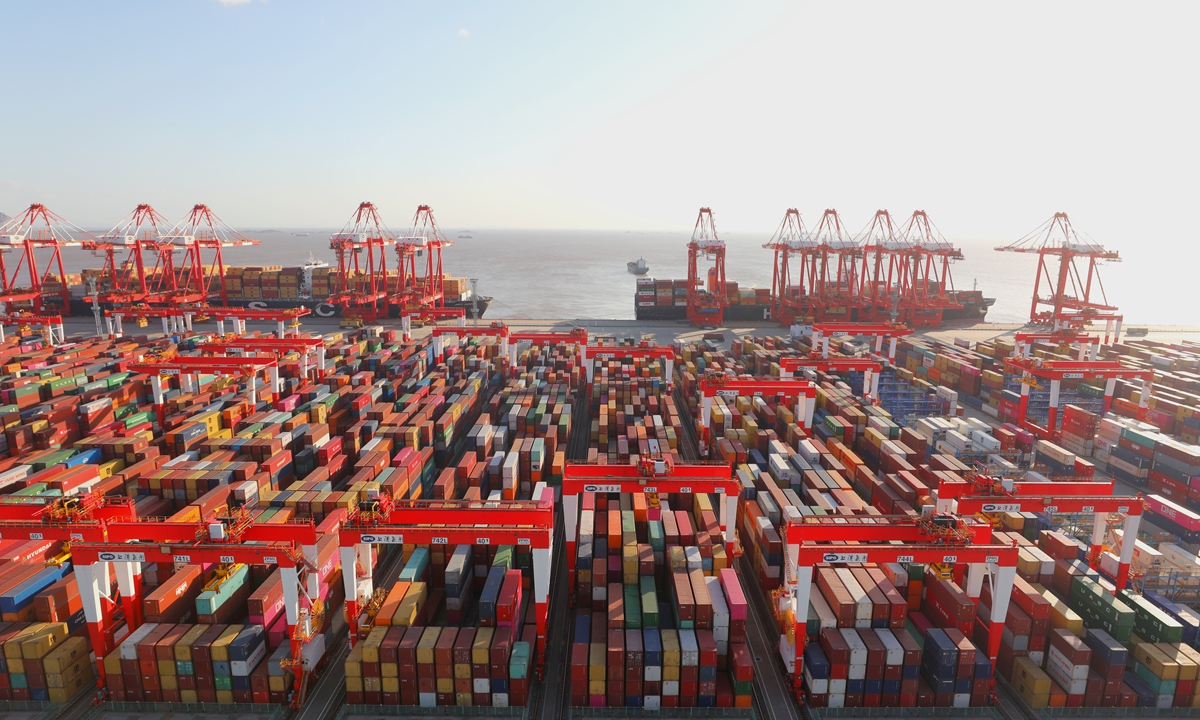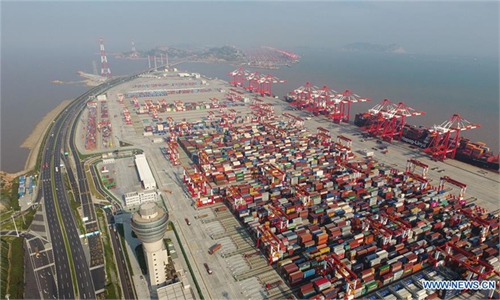SOURCE / INDUSTRIES
Surging trade with US refutes some politicians’ decoupling theory

A view of Shanghai Yangshan Deep Water Port Photo: Yang Hui/GT
Busy port, piling containers, autonomous vehicles helping load cargo … such scenes vividly reflect how China's quick recovery from the COVID-19 epidemic is serving the demand of the world.
Especially, surging US-China trade has become the strongest argument to refute the "decoupling" theory proposed by flimflam US politicians in Washington, business representatives said.
At Shanghai's Yangshan Port, the world's biggest automated terminal, several container-handling gantry cranes were operating in full swing as trucks passed through the shipyard to load containers.
The port has seen activity resume at an accelerated pace since April as China contained the COVID-19 epidemic, and it set a monthly high record for container handling in October, driven by growing domestic demand and booming trade with ASEAN countries, the US and Europe.
"The container-handling volume at the port underscores the rapid recovery of China from the virus," Fang Huaijin, vice president of the Shanghai International Port Group (SIPG), told the Global Times on Tuesday.
Especially since July, the port has seen a significant spike in China-US shipping rates because of rising demand, which reached $4,000 per container at the peak, Fang noted.
As the US has not fully controlled the coronavirus, impacting the turnover of its ports on the country's West Coast, the port of Shanghai has faced a shortage of empty containers returning from the other side of the Pacific.
The port of Shanghai saw record high container volume in October, reaching 4.2 million 20-foot equivalent units, according to data provided by the SIPG.
The rapid growth was driven by strong domestic demand and increasing trade with ASEAN countries since the beginning of this year, followed by other trading partners elsewhere.
While the US-initiated trade war cast a shadow over the port's activity due to shrinking trade volume in 2019, the robust recovery since the beginning of this year tells a different story.
"Some politicians advocate economic 'decoupling', which is not even realistic, as the economic relationship between China and the world is like that of bones and flesh. What will be the result of a forced decoupling?" Fang said.
At the end, it will be businesses that have the final say in a market-driven environment, not those politicians, he added.
China's exports to the US increased 20.5 percent year-on-year to $44 billion in September despite higher US tariffs imposed by the Trump administration, the Associated Press reported on October 13. China imported $13.2 billion worth of American goods during the same month, a rise of 24.5 percent year-on-year.
Some European countries are now fighting a second wave of the epidemic and some have returned to city lockdowns. In addition to surging daily infections in the US, the pressure on trade will persist in the coming months, Fang predicted.


